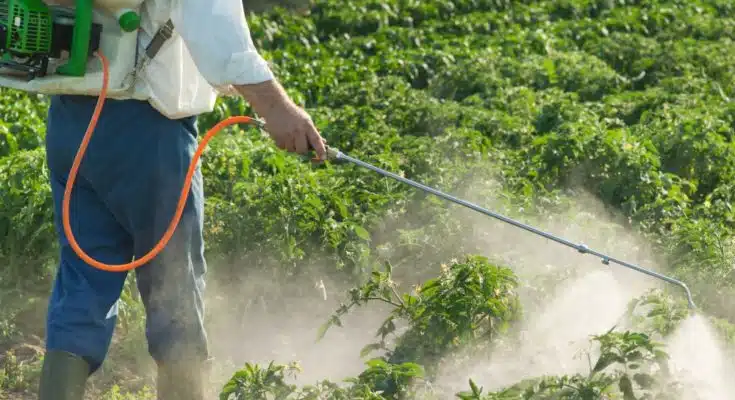The Government, Centre has directed officials to encourage pesticide manufacturers to import formulations and manufacture required agrochemicals in the nation. As a result, it has loosened several requirements under ease of doing business while maintaining mandatory technology registration with the Central Insecticide Board (CIB).

India currently ranks fourth largest producer of agrochemicals/pesticides behind the United States, Japan, and China, with total pesticide production over Rs.38,000 crores (US$ 5020 million), with pesticides above Rs.18,000 crores (US$ 2320 million) shipped worldwide. As a result, India is a net exporter of agrochemicals/pesticides. As the country strives for self-sufficiency and the “Make in India” vision, the Pesticides Manufacturers & Formulators Association of India (PMFAI) has asked the government of India for several measures to boost the Indian pesticide sector in May 2020
Data privacy concerns
“However, in such instances, the Certificate of Registration (CR) would be issued with a two-year validity.” Shelf life claims of up to two years, or as the case may be, (provisionally) be granted to insecticides with the condition that the applicant submits real-time/actual storage stability study data in the proposed construct and container of sale for a duration of at least 30 months, within two and a half years of the application for granting the registration, failing which the registration certificate shall stand invalid,” PK Singh, chairman of the Registration Committee (RC) of the CIB said.
There has been a squabble between international firms and Indian firms, as many global firms do not bring in technology owing to concerns about data privacy.
Furthermore, customs charge is another barrier to the import of new technologies. CropLife India, a crop science industry association, urged the government last year to maintain a consistent basic customs charge of 10% on both technical raw materials and formulations.
The pesticide industry’s desire for data privacy has already been rejected by the Parliamentary Standing Committee on Agriculture. The Standing Committee on the Controversial Issue of Protection for Regulatory Data (PRD) praised the government in its 36th Report on The Pesticide Management Bill, 2020, for “the fact that no provision” for data protection for the introduction of novel compounds or products has been deliberately inserted into the Pesticide Management Bill, 2020, as it will not only safeguard the domestic industry, which primarily relies on the production of “generic pesticides,” but also farmers, who will gain from the availability of less expensive pesticides.

New Formulation
“The Committee also feels that India has a very large and developing market for agro chemicals, and with vast fertile land, it will be able to attract the introduction of novel molecules from both foreign and domestic enterprises, even if no data protection is provided,” it stated.
However, scientists believe that without PRD, no new molecule will be developed until data is secured, even for non-patented pesticides. In India, there are 295 compounds that have received technical registration, whereas China has 689. Any off-patented chemical brought to India after 20 years of its patent must go through trials in the country, for which someone must invest, and no one will introduce such items unless his investment is safeguarded for at least five years, according to specialists.
India is currently the fourth largest producer of agrochemicals/pesticides behind the United States, Japan, and China, with total pesticide production over Rs.38,000 crores (US$ 5020 million), with pesticides above Rs.18,000 crores (US$ 2320 million) shipped to worldwide markets. As a result, India is a net exporter of agrochemicals/pesticides. According to officials, the government has chosen to encourage companies to bring in new technologies that will benefit farmers.
READ MORE:
https://tdznkwjt9mxt6p1p8657.cleaver.live/nepotism-and-its-manifestation-in-various-dimensions/
https://tdznkwjt9mxt6p1p8657.cleaver.live/fca-fines-metro-bank-with-12-2-million-2/













